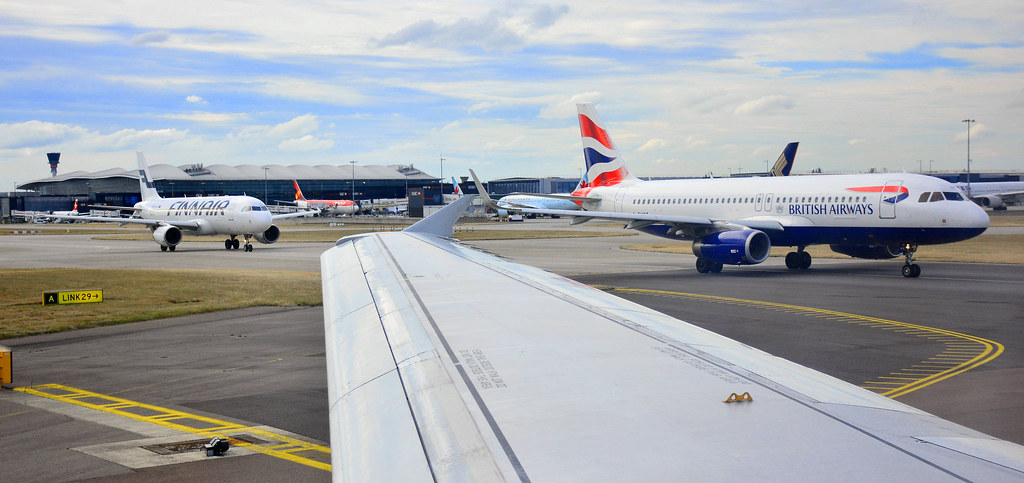The climate impact alone should make it easy for a decision-maker to reject airport expansion. But there are other good reasons too
Claire James is Campaigns Coordinator at the Campaign against Climate Change
For Heathrow lobbyists, such as Parmjit Dhanda, the sky’s the limit when it comes to extravagant claims of the benefits of airport expansion. Using the figure of £147 billion economic benefits, for example. This was published by the 2015 Airports Commission despite its own advisory panel warning it was unreliable. It was quickly dropped at the time by the Department for Transport, who instead used an estimate of a £61 billion benefit over 60 years, divided between passengers and the general economy.
Dhanda also predicts that ‘up to 180,000 unionised jobs’ would be created from a third runway. How that figure breaks down would be interesting, since in 2019 the total workforce across the country directly delivering, or directly supporting, scheduled and non-scheduled air transport services was just 138,000.
A dose of realism is needed. Investment in UK infrastructure and jobs is certainly important, but above all we need to make the right choices in what we build. Will it deliver sustained benefit or become a white elephant? Will it improve wellbeing or will it exacerbate inequality? Is it good value for money?
For accurate answers to any of these questions we cannot ignore the context of accelerating climate breakdown and the urgency with which we must reduce emissions to avoid leaving future generations to pay the price. Heathrow alone is already a major contributor to the UK’s carbon footprint, responsible for around 19 million tonnes carbon dioxide equivalent annually. If this were unchanged with no expansion, by the mid 2030s this one airport would take up a tenth of the UK’s entire annual carbon budget.
Actually, this reported emissions figure underestimates Heathrow’s climate impact as it doesn’t include ‘non-CO2 emissions’ from flights. It has long been known (but widely ignored in policy-making) that the effect of water vapour and other aircraft emissions at high altitude can double or triple aviation’s contribution to heating the atmosphere.
So how can airport lobbyists claim that we can expand Heathrow (and the many airports around the country which are also planning expansion) and have any hope of achieving our climate targets?
In short: overoptimism about technofixes. There is much hype around alternative fuels generated from biofuel crops or household waste. But there is no credible story of how these could ever be scaled up to anything beyond a minute fraction of current global aviation fuel demand. For other proposals such as electric or even hydrogen-powered planes there are significant technical barriers standing in the way of commercial implementation for the foreseeable future
That leaves heavy reliance on carbon offsetting. But successive investigations have shown that many carbon offset schemes are not worth the paper they are written on. The model is also fundamentally flawed. We have to urgently reduce emissions from fossil fuels AND fund positive action such as protecting forests and restoring peatlands. Using the latter as a means to continue the former won’t be enough.
The Climate Change Committee has said there should be no net airport expansion across the UK and “no airport expansions should proceed until a UK-wide capacity management framework is in place”. This sensible position focuses attention on whether any benefit from Heathrow expansion would go to the country as a whole or just London and the south east.
The climate impact alone should make it easy for a decision-maker to reject airport expansion. But there are other good reasons too. Heathrow and other airports are not an unmixed, job-bestowing blessing for surrounding communities. They bring low-level constant stress of noise from flights, along with air pollution and traffic congestion. That is why local councils including Hillingdon, Wandsworth, Southwark, Hounslow, Hammersmith and Fulham, and Richmond have opposed Heathrow expansion.
Even ignoring for the moment climate impacts on the industry’s future sustainability, is airport expansion the best route to create good, well-paid jobs? The New Economics Foundation analysed the economics of air transport in their report, ‘Losing Altitude’. Air transport and supporting activities has seen a significantly greater decline in wages adjusted for inflation compared to other sectors of the economy (2006-2022). Meanwhile the number of jobs generated per passenger has also been steadily falling. Comparing jobs supported per £1 million revenue it ranks as one of the poorest sectors for job creation.
Clearly Heathrow is a major local employer, but let’s not have rose-tinted glasses, or pretend we can confidently predict workers’ futures in a climate-changed world. The Heathrow third runway is a zombie proposal which should be left in the ground where it belongs.
To reach hundreds of thousands of new readers we need to grow our donor base substantially.
That’s why in 2024, we are seeking to generate 150 additional regular donors to support Left Foot Forward’s work.
We still need another 117 people to donate to hit the target. You can help. Donate today.



